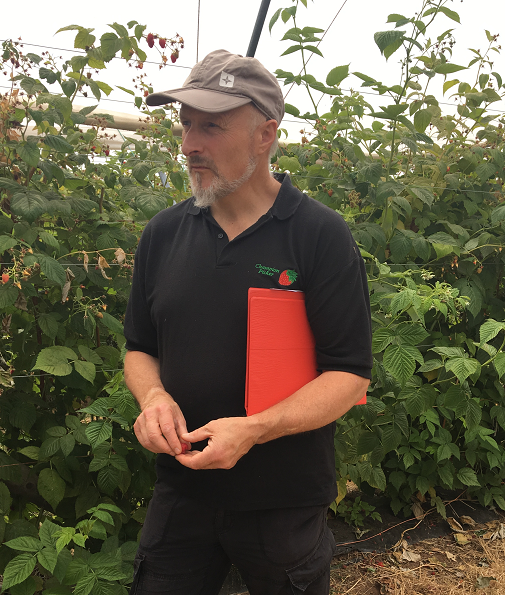Please click here to access the main AHDB website and other sectors.
The Champion approach to labour efficiency
Friday, 7 December 2018
With access to affordable and quality labour being a serious challenge for UK horticulture, can introducing Champions to your business really make an impact on your productivity? Management Consultant and fruit specialist Chris Rose believes so and here he explains why.

Wherever many people are performing the same task, there is invariably a wide range of performance levels.
A Champion can be defined as “one who achieves superb results (e.g. very high output), consistently (day in, day out), while meeting required standards (e.g. picking to supermarket specifications, not missing or leaving any ripe product) without needing constant supervision.”
From this generic description, you firstly need to define what ‘superb results’ are. In most cases, this is likely to be very high output of an acceptable quality, although – in some cases – the quality may come above output; when supplying high-end restaurants, for example.
I have seen many instances of field supervisors and packhouses demanding ‘quality, quality, quality’ when, in practice, the product only needs to meet a standard – albeit an exacting one. Any time and energy spent going above that standard is a waste of money.
For each major job, define ‘Champion-level’ performance. You may have an amazing picker, cutter, packer or a team that exemplifies Champion performance for you. Whichever way, Champion performance must be clearly defined and will be significantly above the average performance.
Finding Champions
As growers, you source the best plants you can, give them the best conditions you can and nurture them to keep them healthy and productive. We need to think of labour in the same way. New workers are raw materials and will only reach their potential with the very best treatment, including good facilities, fair treatment, pastoral care, thorough induction and training and proper remuneration.
Teaching Champions
The role of the supervisor in enhancing performance can be broken down into three stages:
- Induction and initial training
- Teaching to competence
- Coaching to excellence
Most supervisors are good at numbers 1 and 2, but many then see themselves as having a policing, rather than a coaching role. Consistently achieving the required quality is a fundamental part of the supervisor’s role; however, once workers are competent they should not need constant policing. There is always a need for some quality control, but it should be a minor part of supervisor’s role.
Once workers are competent in the task being undertaken, the coaching role involves helping people to reach their potential. Coaches should understand the individual and know what they need to do to improve, whether through helping to increase motivation, teaching better techniques or helping them to believe in their potential.
The Champion supervisor
The very best supervisors and team leaders achieve far higher success rates. They lead very few workers who don’t make the grade and many more who reach their potential and excel.
The Champion supervisor does not need to have been a Champion picker; it is more important that they have good people skills.
Champion supervisors make every effort to connect with each and every person in their team. They achieve connection through intention; i.e. the supervisor genuinely wants to help the individual to meet their needs and the requirements of the job. They naturally want to coach their workers to achieve great results, so use a nurturing, supporting and caring approach. Through teaching and coaching, they successfully instil a strong work ethic and standards into their team.
Another hallmark trait is that the Champion supervisor believes in the potential of each individual. If you judge a new worker to be inadequate in some way from the outset, you are far less likely to put the effort into developing them. When they fail, the supervisor says, “I knew from the start that they would fail.” Supervisors who don’t judge will make an extra effort to help the slower developers. They understand that slow developers can become Champions too.
Chris Rose spoke to AHDB as part of the SmartHort campaign to help improve labour productivity in UK horticulture.
Supervisory skills workshops are running across the UK until March 2019. To find a workshop near you, visit ahdb.org.uk/events

